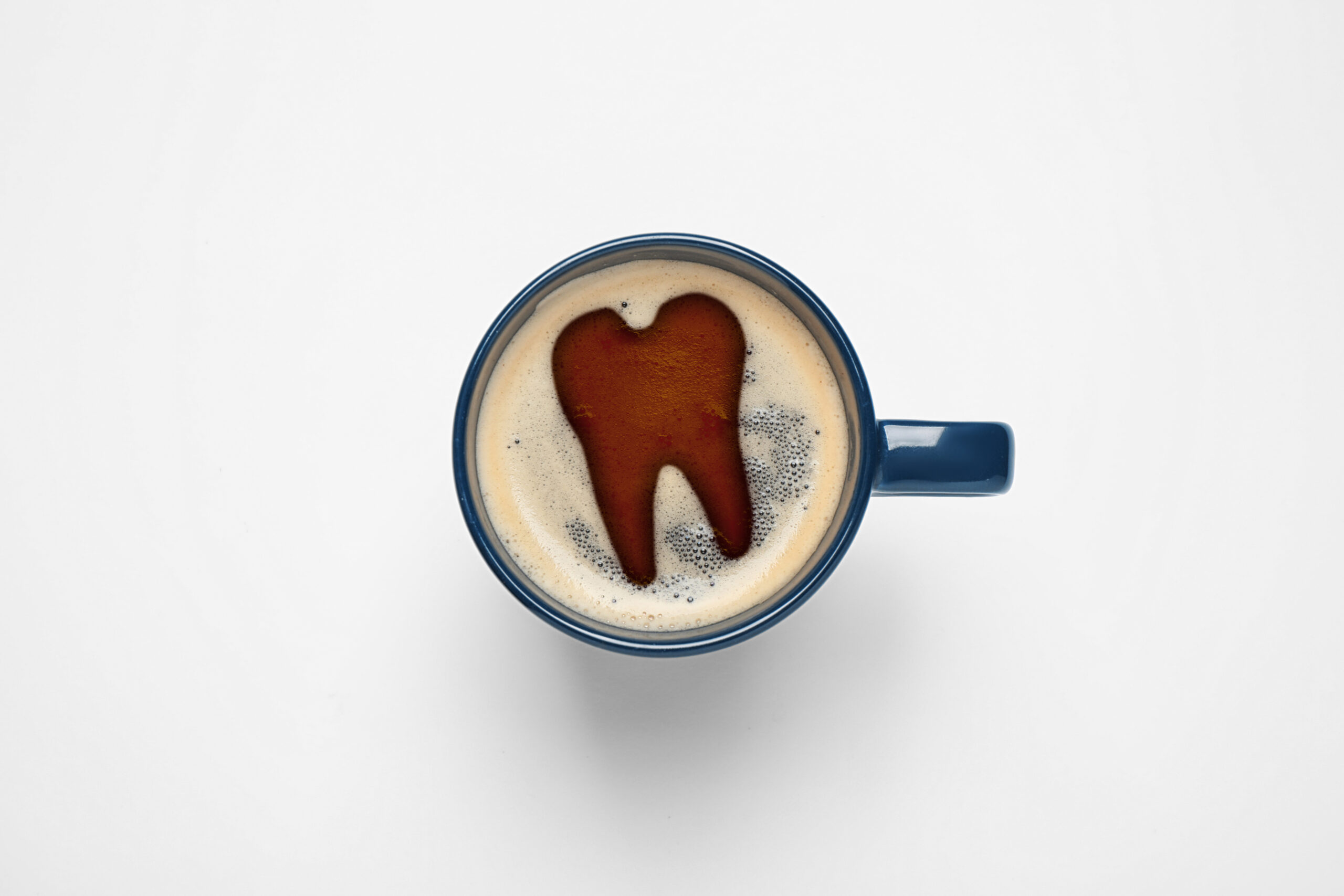Coffee is a popular beverage worldwide, but many wonder: Does coffee stain your teeth? The answer is yes, and the reason lies in the compounds found in coffee, particularly tannins. These substances can stick to the enamel of your teeth, leading to yellow or brown stains. In this article, we’ll explore the science behind coffee staining and share tips on how to prevent it.
Why Does Coffee Stain Your Teeth?
Coffee contains tannins, a type of polyphenol found in plants, which are responsible for the staining effect. These organic compounds break down in water, and when they do, they release colour compounds that adhere to the enamel of your teeth. Over time, these compounds cause discolouration, making your teeth appear yellow or brown.
Tannins and Enamel
When tannins break down in coffee, they bond with the porous surface of your tooth enamel. This process is gradual but can lead to noticeable staining with consistent coffee consumption.
Does Coffee Stain Your Teeth Due to Its Acidity?
Apart from tannins, coffee’s acidic nature also plays a significant role in staining. The acidity in coffee can weaken tooth enamel, making it more vulnerable to stains. The enamel becomes more porous, and the colour compounds in coffee have an easier time sticking to the surface.
How Acidity Contributes to Staining
The acidic properties of coffee cause a temporary softening of the enamel, which increases the potential for staining. This is why it’s important to protect your enamel by practising good oral hygiene and avoiding excessive coffee consumption.
Preventing Stains
While coffee can stain your teeth, there are several effective ways to minimise its impact. Here are some practical strategies for keeping your smile bright while still enjoying your daily cup of coffee.
1. Drink Coffee in One Sitting
To limit the exposure of your teeth to staining agents, try to drink your coffee in one sitting rather than sipping it throughout the day. The longer coffee stays in contact with your teeth, the higher the risk of stains forming.
2. Use a Straw
Using a straw when drinking coffee can significantly reduce the amount of contact between the liquid and your teeth. By directing the coffee to the back of your mouth, you can avoid staining your enamel.
3. Rinse with Water After Drinking
After drinking coffee, rinse your mouth with water to help remove any leftover residue from your teeth. This simple step can help prevent tannins from sticking to your enamel, reducing the risk of staining.
4. Brush Your Teeth, But Not Right After Coffee
Brushing your teeth immediately after drinking coffee may seem like a good idea, but it can damage your enamel. Coffee’s acidity softens enamel temporarily, so it’s best to wait at least 30 minutes before brushing to avoid causing enamel erosion.
Does Coffee Stain Your Teeth More Based on Its Type?
The intensity of staining can vary depending on the type of coffee you drink. Darker roasts typically have higher tannin concentrations, which can result in more pronounced staining. If you’re concerned about discolouration, opting for lighter roasts might reduce the risk of staining.
The Impact of Darker vs Lighter Coffee
- Darker coffee: Has higher tannin content and is more likely to cause stains.
- Lighter coffee: Contains fewer tannins, so it may cause less staining.
Do Professional Cleanings Help with Coffee Stains?
If coffee stains have already formed on your teeth, professional cleaning sessions with your dentist can help remove surface stains. Regular cleanings can help restore your teeth’s natural whiteness and prevent more stubborn stains from setting in.
Professional Whitening Treatments
For more persistent stains, professional whitening treatments are an option. Dentists use advanced tools and techniques to whiten teeth, offering more effective results than over-the-counter products.
Additional Tips to Minimise Coffee Staining
Here are some additional habits that can help you reduce the risk of coffee stains on your teeth:
- Drink in moderation: Limiting your coffee intake helps minimise exposure to tannins and acids.
- Choose coffee additives carefully: Opt for black coffee instead of adding milk or sugar, which can also contribute to staining.
- Maintain good oral hygiene: Brush your teeth regularly, floss daily, and use mouthwash to help remove any lingering coffee residue.
- Stay hydrated: Drinking water throughout the day can help wash away coffee residue from your teeth.
Does Coffee Stain Your Teeth Permanently?
While coffee can cause stains, they are not necessarily permanent. With the right care, you can reverse or minimise the appearance of stains. Regular brushing, professional cleanings, and whitening treatments can all help maintain a bright smile.
Final Thoughts
Does coffee stain your teeth? The answer is yes, but there are numerous strategies you can use to prevent and reduce staining. By drinking coffee in moderation, practising good oral hygiene, and taking steps like using a straw or rinsing with water, you can enjoy your coffee without worrying about its impact on your teeth.
If you’ve already noticed stains, don’t fret—there are professional treatments available that can restore your teeth’s natural whiteness. With the right care and attention, you can continue enjoying your favourite beverage while keeping your smile bright.













